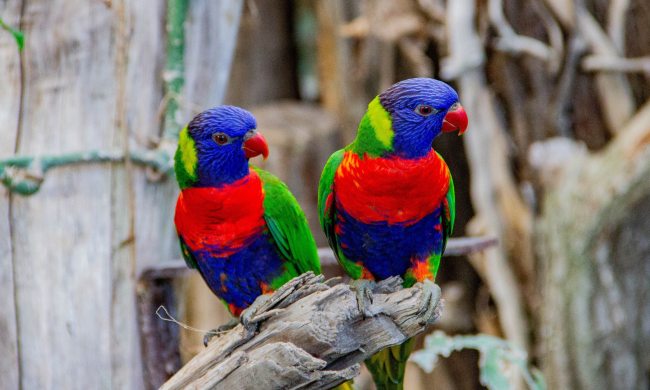Watching birds from the windows is one of the many perks of living near wildlife: we can stay warm and gaze out on the flocks that frequent our feeders. But sadly, these windows that allow us to view the outdoors can harm the creatures in it. Animals experience the world differently from us, and they see differently, too. Therefore, it’s important to take steps to make your windows visible to birds (and other fauna) in order to help spare them from unnecessary death or injury. But why do birds fly into windows? We’ll explain what the problem is and also give you some advice on how to prevent it. With a few simple tricks, you’ll still get to enjoy the bird show and keep them from getting hurt.
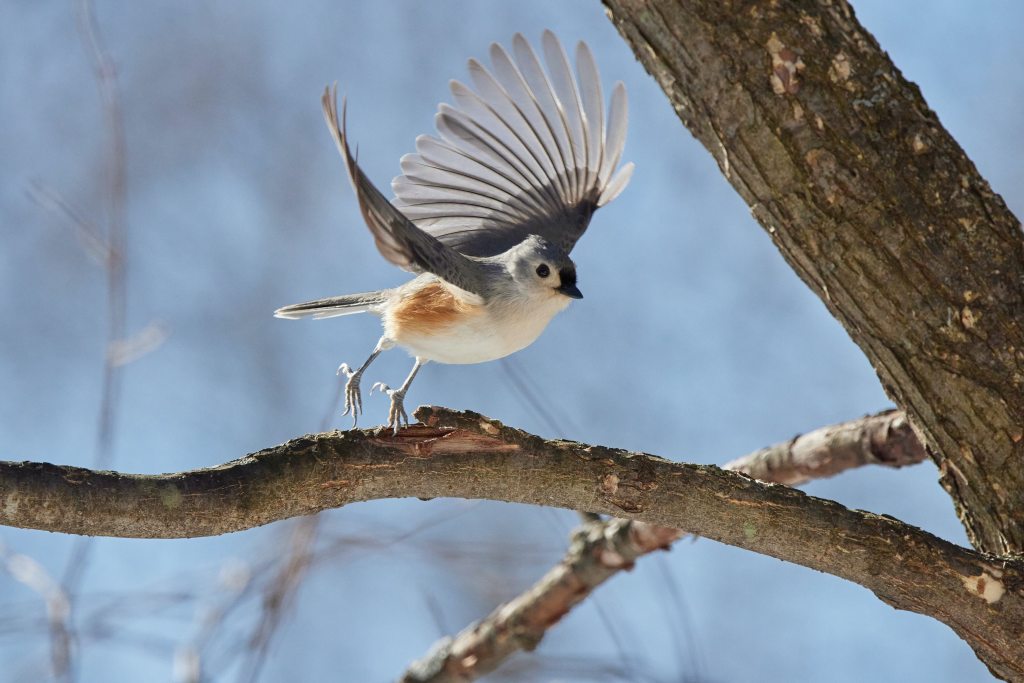
Why do birds fly into windows?
Turn off the lights inside and go out during the early morning to look at your windows. You’ll likely see a dim version of your own yard reflected back to you. While it only gives you a moment’s pause, birds don’t understand that a plant can show up in a piece of glass but not really be there. Unfortunately, this means when they fly into your windows, they’re actually trying to get into the trees. That’s because there’s a wide-open sky in the panes of your home welcoming the avians of your area.
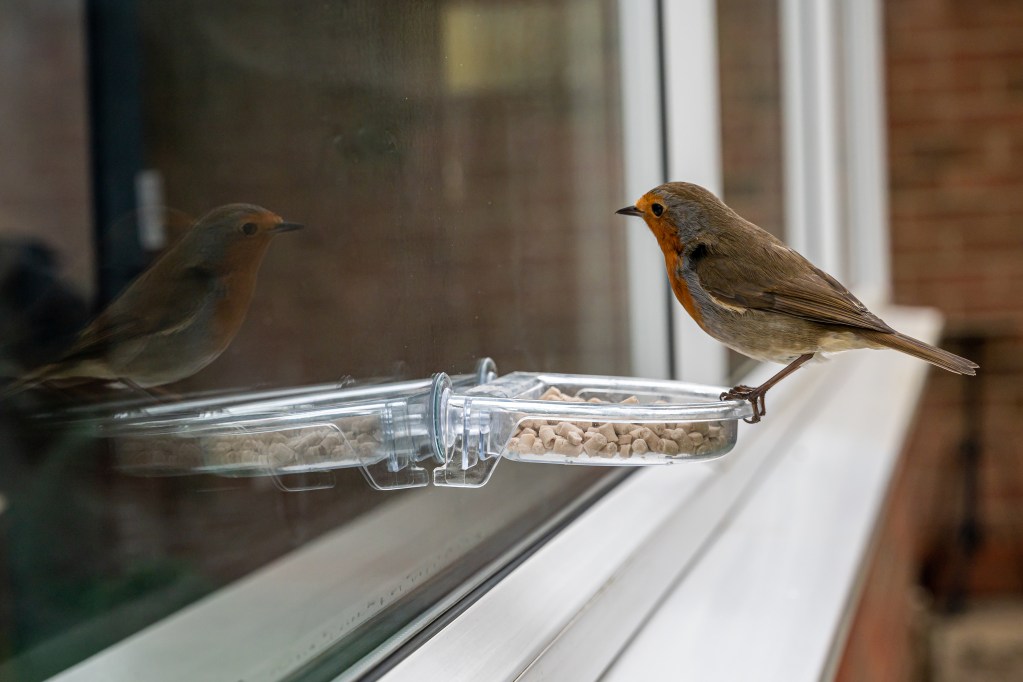
How do windows harm birds?
Luckily, many, even most, birds who fly into windows wind up being just fine. A glancing blow might just give them the dizzies for a minute. If you hear that telltale crunch, go ahead and check it out. You should stay a few feet back while assessing since some birds want to get up and hop away to recover in a safe spot on their own. If they make a break for it, let them be. However, if you find a stunned bird or one with a broken wing, you can step in and help, provided you follow all laws.
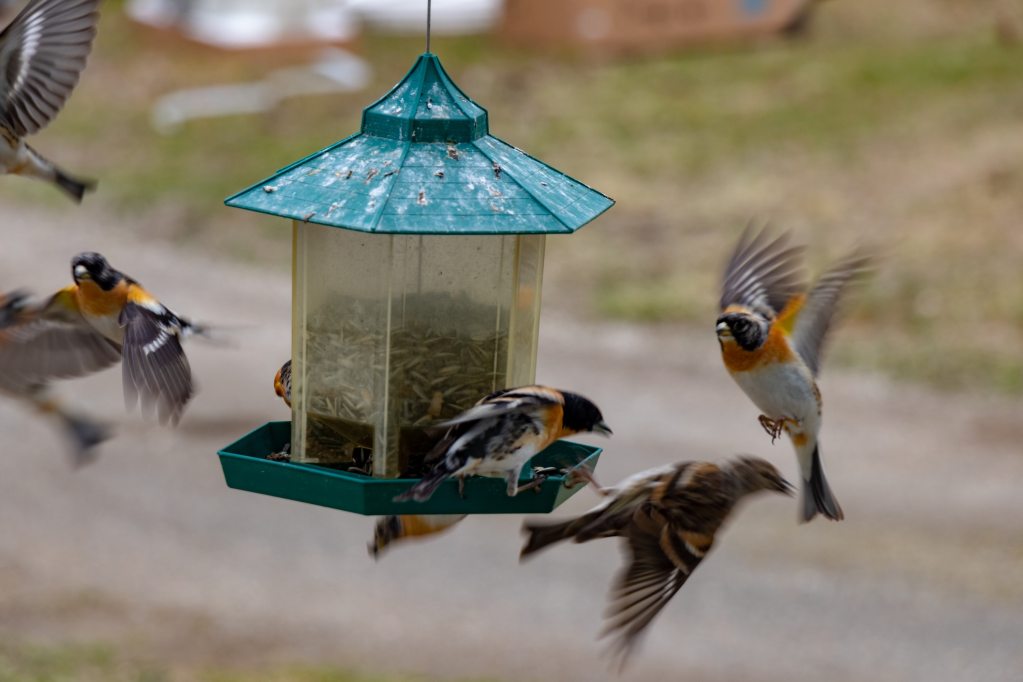
What do I do if a bird hits my window and dies?
While many birds do survive a brush with glass, about a billion die each year from running into windows, mostly because there are a lot of windows in the world. If it’s clear the bird is dead, you can decide just to leave it and let nature take its course. However, you can also choose to bury the bird but check your local zoning laws as some prohibit this. Many choose to remove the bird from inside a fenced-in area to discourage predators from coming too close to the home, or the bird getting picked up by a pet. You can place the bird in a nearby open field or wooded area to allow it to decompose naturally.
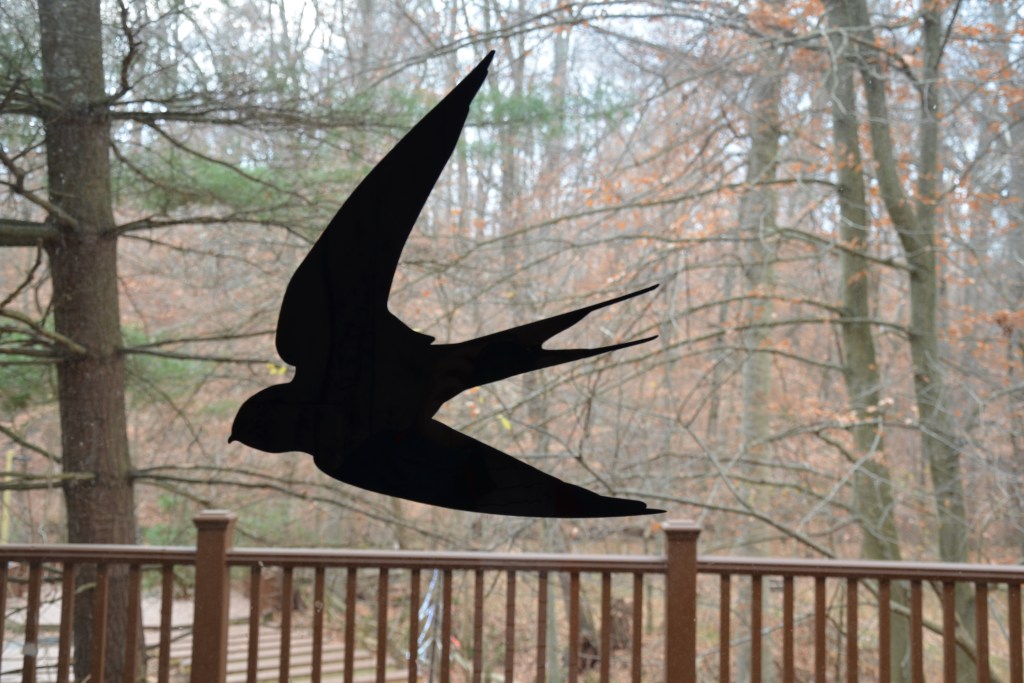
What can I do to protect the birds from my windows?
First, identify the windows that are most likely to cause problems. Many parts of your house stay in a shadow or aren’t on a flight path, so they will never tempt a bird. By taking care of the worst offenders, you can prevent dozens of collisions and save countless birdies. The easiest way to fix the problem is by putting screens and decals on the outside of the window. Remember that putting them on the inside doesn’t do the trick – birds will still see the reflection of vegetation in the glass and get into trouble. Make sure to put up enough and to space them close together. Check out the American Bird Conservancy list to find a safe and effective product.
On top of fixing existing windows, keep birds in mind any time you decide to do new construction. Even a garage, greenhouse, or shed can be a hazard if it’s placed in a particularly popular location. Some really cool designs work toward preventing windows from ever appealing to birds in the first place. Take a look through this handy guide for more details.
How can I keep the birds of my neighborhood safe?
Once you’ve covered your house, feel free to pass along extra decals to the neighbors and encourage other bird-safe practices. Remember that pets account for an even higher death toll for wild birds than windows. But these animals can exist in harmony. Keep your dogs and cats indoors or contained and monitored outside and avoid nesting areas on walks, especially during the spring. You can also train many dogs to leave wildlife alone.
Don’t despair over all the birds who might hit your windows. Instead, use this inspiration to make a world occupied by humans safer for these natural creatures. Often, a few simple steps will change everything for flyers but won’t have any negative impact on your life and allow you to enjoy birdwatching even more. Go a step further and champion legislation that keeps birds top of mind and protects and preserves them at all times.




